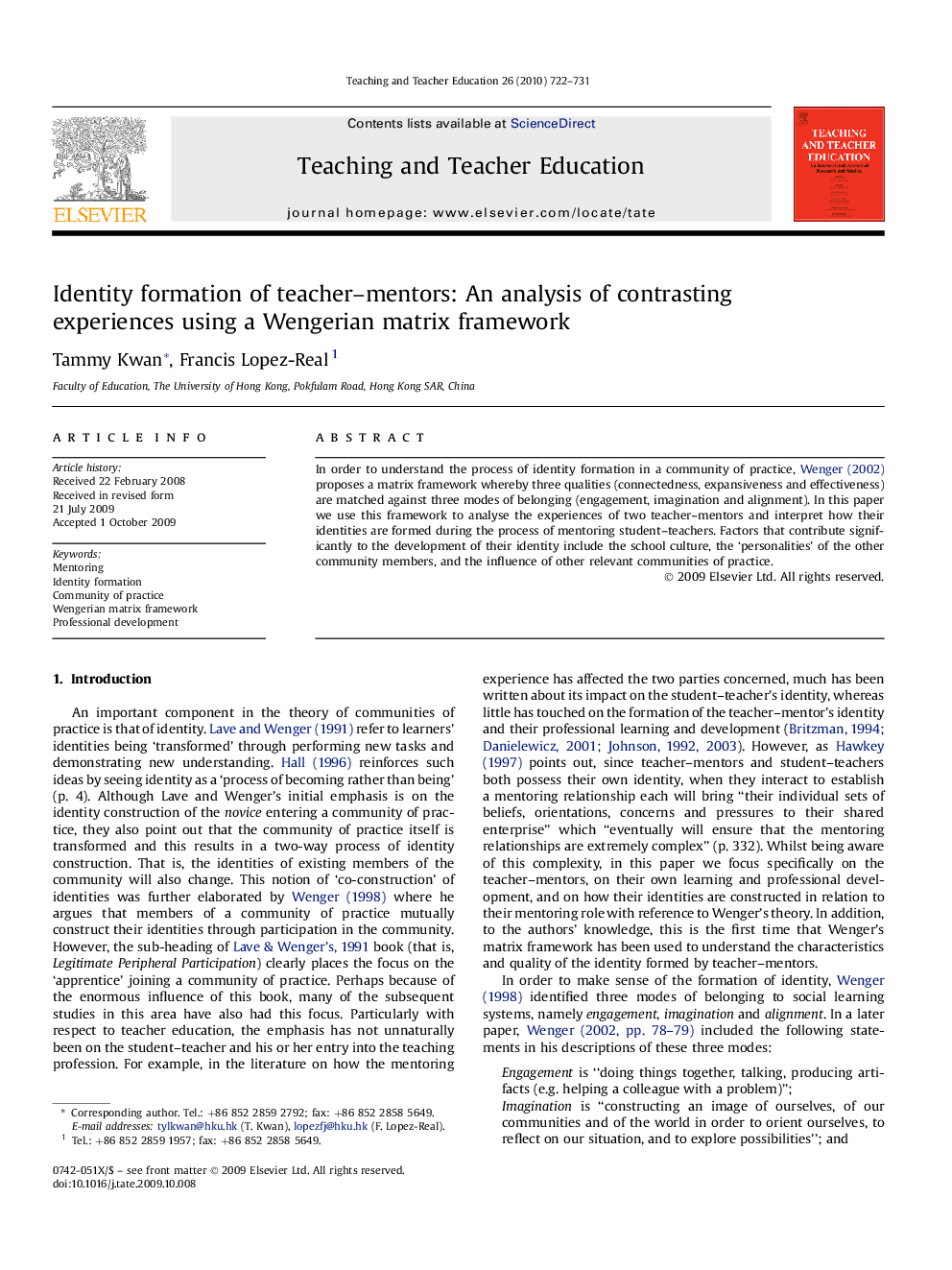| Article ID | Journal | Published Year | Pages | File Type |
|---|---|---|---|---|
| 10319360 | Teaching and Teacher Education | 2010 | 10 Pages |
Abstract
In order to understand the process of identity formation in a community of practice, Wenger (2002) proposes a matrix framework whereby three qualities (connectedness, expansiveness and effectiveness) are matched against three modes of belonging (engagement, imagination and alignment). In this paper we use this framework to analyse the experiences of two teacher-mentors and interpret how their identities are formed during the process of mentoring student-teachers. Factors that contribute significantly to the development of their identity include the school culture, the 'personalities' of the other community members, and the influence of other relevant communities of practice.
Related Topics
Social Sciences and Humanities
Social Sciences
Education
Authors
Tammy Kwan, Francis Lopez-Real,
